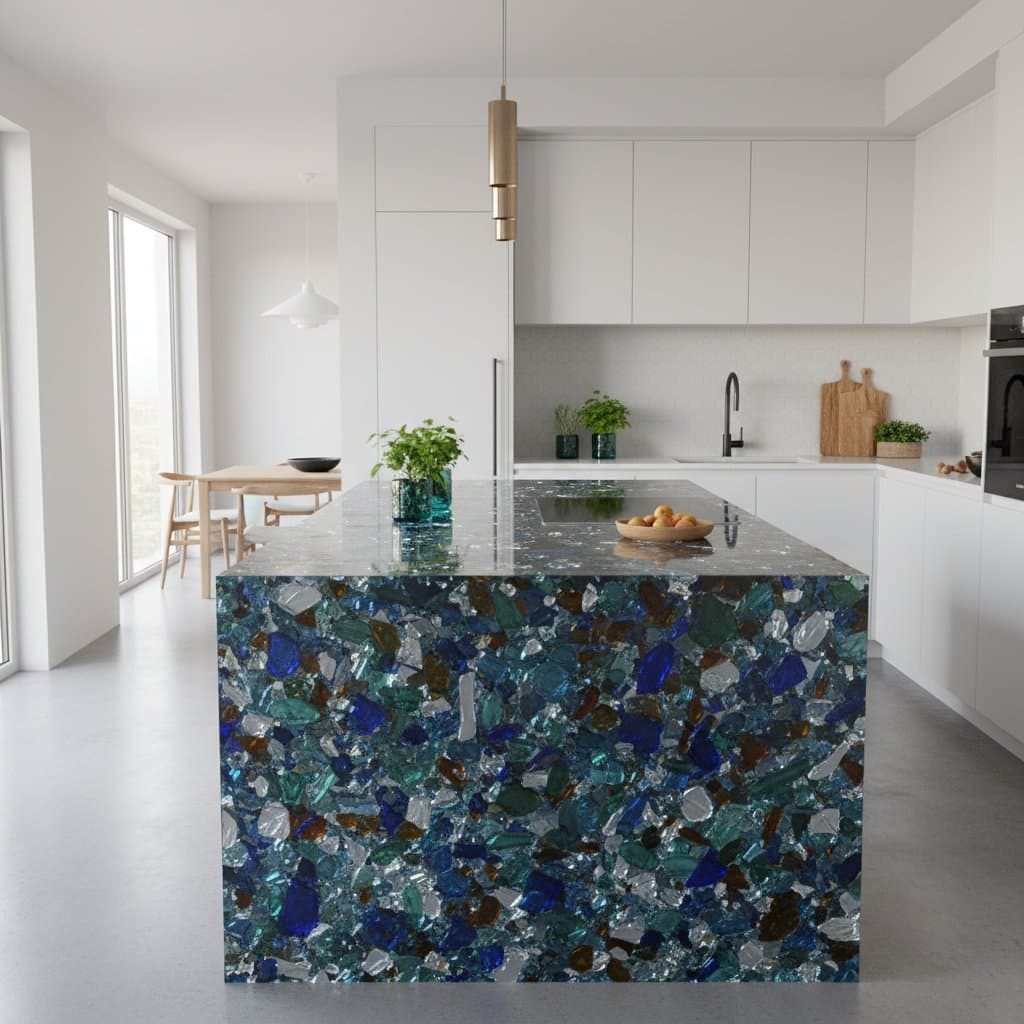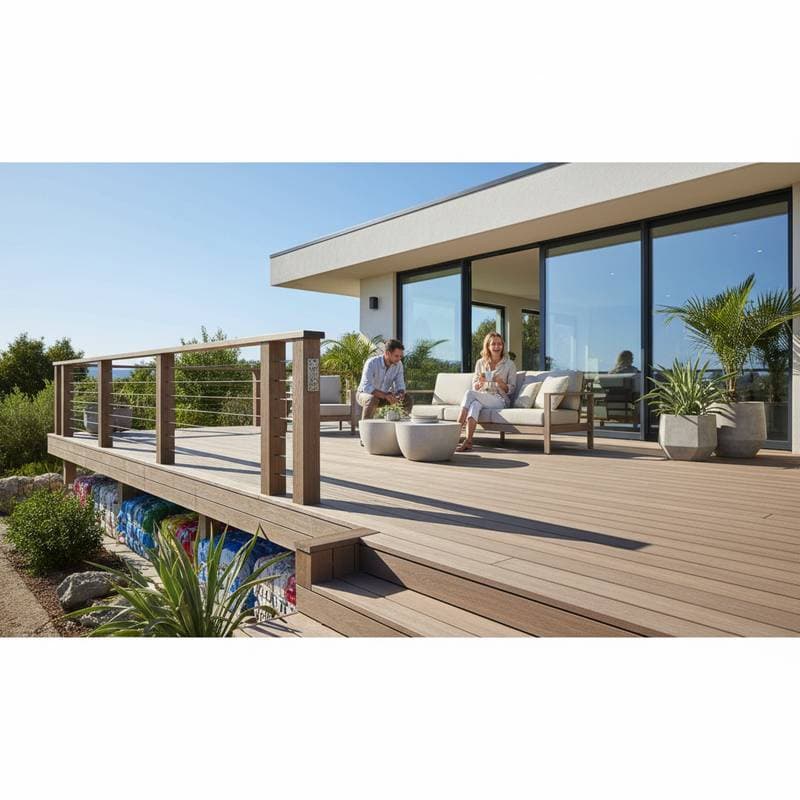Why Recycled Glass Countertops Define 2025 Kitchen Design
Countertops serve as the foundation of any kitchen, influencing both functionality and visual harmony. Recycled glass options emerge as essential elements in contemporary, environmentally aware designs. For remodel projects seeking a balance of aesthetics, ecological responsibility, and robustness, these surfaces provide an ideal solution.
Consider the composition: manufacturers incorporate up to 80 percent post-consumer and industrial glass into each slab. This process diverts more than 50 pounds of material from landfills per square foot. Installation costs average between $60 and $120 per square foot, aligning closely with quartz or granite alternatives.
Sealing enhances resistance to stains and heat, yielding a durability on par with natural stone. Customization spans numerous colors and finishes, delivering unique patterns that traditional materials cannot replicate.
Environmental Advantages of Recycled Glass
The primary draw of recycled glass countertops lies in their contribution to waste reduction. Producers crush discarded bottles, windows, and factory remnants, then blend them with cement or resin binders to form solid slabs. The U.S. Environmental Protection Agency notes that glass constitutes a substantial portion of recyclable waste often destined for disposal sites.
Selecting these countertops interrupts that cycle and lessens reliance on virgin resources. In contrast to granite or quartz, which demand extensive quarrying, energy, and water, recycled glass production minimizes carbon emissions. Many companies source glass regionally and employ low-emission techniques, amplifying overall ecological benefits.
Homeowners contribute to broader sustainability goals through this choice. Each installation supports circular economy principles, where waste materials gain new life in everyday applications.
Aesthetic Versatility and Visual Appeal
Beyond sustainability, recycled glass countertops captivate with their artistic qualities. Embedded glass fragments create textured, luminous effects that shift under varying light conditions. Professionals view these surfaces as a fusion of craftsmanship and innovation, where utility intersects with personal expression.
Neutral tones, such as soft whites or grays accented by translucent pieces, evoke marble's refined look for subtle elegance. Vibrant selections, including deep blues or lush greens with shimmering inclusions, establish bold accents in larger spaces. Finishes range from glossy polish for reflective brilliance to matte honing for a tactile, understated vibe.
To integrate seamlessly, match the countertop's palette with cabinetry and backsplashes. This approach ensures cohesive flow while highlighting the material's inherent sparkle.
Practical Performance in Daily Use
Recycled glass countertops excel in real-life scenarios, offering reliable performance for busy households. A proper sealant renders the surface nonporous, effectively blocking bacteria growth and odor retention. Cleaning involves simple routines: wipe with mild soap and warm water, avoiding abrasive tools to preserve the finish.
These surfaces withstand brief exposure to hot cookware, though using protective trivets prevents potential marks. Hardness levels compete with granite, yet the flexible composition reduces risks of chips or etches from impacts. With consistent care, expect decades of service without significant wear.
Test the material's resilience during selection by examining samples for edge strength and color consistency. This step confirms suitability for high-traffic areas like islands or prep zones.
Comparative Analysis of Costs and Benefits
| Material Type | Average Cost (Installed) | Maintenance Level | Sustainability Rating |
|---|---|---|---|
| Granite | $50 - $100 per sq. ft. | Moderate | Low |
| Quartz | $70 - $120 per sq. ft. | Low | Medium |
| Recycled Glass | $60 - $120 per sq. ft. | Low | High |
Initial expenses mirror those of premium options, but recycled glass offers superior long-term returns. It bolsters property value through eco-certifications and enduring style. Sustainable attributes appeal to environmentally minded buyers, enhancing marketability.
Integrating Recycled Glass into Your Remodel
Incorporate recycled glass countertops to align your kitchen with personal principles and design preferences. These surfaces suit diverse styles, from sleek contemporary layouts to warm traditional settings. Begin by assessing space dimensions and usage patterns to select optimal slab sizes.
Consult fabricators for custom edge profiles, such as eased or bullnose, to complement fixtures. Pair with energy-efficient appliances and reclaimed wood elements for a fully green transformation. The result: a functional, beautiful space that minimizes environmental impact while maximizing enjoyment.
Ultimately, choosing recycled glass invests in a resilient, waste-reducing feature that elevates daily living. It transforms routine tasks into interactions with thoughtful, planet-friendly design.









